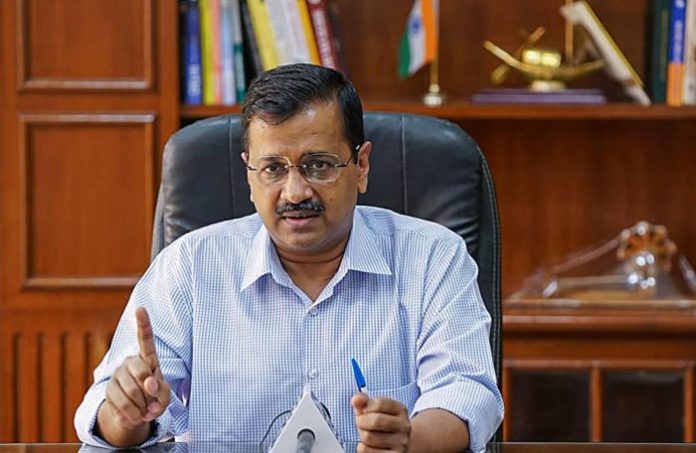The Government of NCT of Delhi through Directorate General of Health Services on Thursday issued guidelines for Home Isolation of very mild/ pre-symptomatic COVID-19 cases.
COVID-19 Testing Strategy was mentioned in the Standard Operating Procedures for Home Isolation which includes Asymptomatic direct and high-risk contacts of a confirmed case should be tested once between day 5 and day 14 of coming in his/her contact.
Direct and high-risk contact includes: –
1. One those who live in same household of a confirmed case.
2. Health care Workers who examined a confirmed case without paper use of PPE kit as per recommendations
A note was mentioned in the guidelines which says that any patient who thinks that he/she might be having symptoms of COVID19 testing centre or flu centres identified by the Delhi Government, decision to take sample of such patients will depend on the discretion of Medical officer or Incharge of the flu centre or COVID testing centre and all suspects tested in COVID testing centre will return to his/her home after sampling.
“When the patient turns out to be positive
1. Criteria for Home Isolation: Person should be clinically assigned as a very mild case/pre-symptomatic case by the treating Medical Officer or by the Incharge of nearby Public health facility.
2. Such cases should have the requisite facility at their residence for self-isolation and also for quarantining the family contacts.
3. A team comprising of ANM/ASHA and AWW will do the assessment of the suitability/appropriateness of the requisite facility for home isolation of COVID-19 patients, under the supervision of Incharge of nearby Public Health facility.
4. A care giver should be available to provide care on 24X7 basis. A communication link between the caregiver and hospital is a prerequisite for the entire duration of home isolation.
5. The care giver and all close contacts of such cases should take Hydroxychloroquine (HCQ) prophylaxis as per protocol and as prescribed by the treating Medical Officer (detailed given on section of monitoring of HCQ).
6. Download Arogya Setu App on mobile (available at: http://www.mygov.in/aarogya-setu-app/) and it should remain active at all time (through Bluetooth and Wi-Fi).
7. The patient shall agree to monitor his health and regularly inform his health status to the District Surveillance Officer for further follow up by the Surveillance teams.
8. The patient will fill in an undertaking on self-isolation (Annexure I) and same will be preserved in official records in softcopy and shall follow home quarantine guidelines. Such individual shall be eligible for home isolation.
9. In addition to these guidelines, home-quarantine guidelines are available at: https://www.mohfw.gov.in/pdf/Guidelinesforhomequarantine.pdf, the required instructions for the care giver and the patient as in Annexure II shall be also followed.
10. A stamp “COMMITED TO HOME ISOLATION” will be stamped by the Health Care Worker using appropriate PPE (Matter enclosed at Annexure III).
11. The date of release is to be 16 days from the date of sample taking.
12. If the two subsequent samples tested are not negative then home isolation will be extended as per prevailing guidelines”, as mentioned in the guidelines.
The Guidelines further says that If anyone becomes symptomatic, while on prophylaxis he/she should immediately inform the Incharge of respective health facility or 24×7 call centre, get tested as per national guidelines and follow the standard treatment protocol. All asymptomatic contacts of laboratory confirmed cases should remain in home Quarantines as per the national guidelines, even if they are on prophylactic therapy.
In case of Daily reporting of patient and his/her care giver’s medical condition The surveillance team or team authorized by the DSO will actively monitor the medical condition of the patient and care giver telephonically or any other mode which DSO thinks deemed fit.
Further in the column of “When to Seek Medical Attention”, it says that the Patient/Care giver will keep monitoring their health. Immediate medical attention must be sought if serious signs or symptoms develop. These could include:
1. Difficulty in breathing,
2. Persistent pain/pressure in the chest,
3. Mental confusion or inability to arouse,
4. Developing bluish discolorations of lips/face and
5. As advised by treating Medical Officer or DSO.
Patients under home isolation will end home isolation if symptoms are clinically resolved and the Surveillance Medical Officer certified him to be free of infection after laboratory testing as prescribed.
Therefore, the patient and his/her caregiver will be followed up for 14 days after their lab sample comes out negative. And they will under no circumstances attend any social/religious gatherings.
-India Legal Bureau


